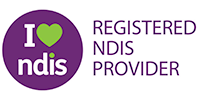In Australia, the National Disability Insurance Scheme (NDIS) offers vital assistance and services to those with impairments. You are free to select the providers who best meet your requirements and objectives as an NDIS member. It is critical to evaluate whether NDIS providers are registered or unregistered when selecting them. This post will explain the differences between registered and unregistered NDIS providers and how they affect your funding.
Understand the NDIS
The NDIS, a government-funded initiative in Australia, provides lifetime support to people with disabilities. Increasing people’s independence, well-being, and social engagement is its primary goal. People will be better equipped to use the NDIS and obtain the assistance they need if they are familiar with its guiding principles and services.
What is the NDIS?
Australia’s government-funded National Disability Insurance Scheme (NDIS) offers essential assistance and services to people with disability impairments. Its main goal is to empower individuals by assisting in the accomplishment of their objectives and, consequently,the enhancement of their general quality of life.
Giving participants more control and autonomy over their financing and service provider selection is the primary tenet on which the NDIS is built. By doing so, it aims to empower people with disabilities to choose their own support arrangements in accordance with their unique requirements and preferences.
Moreover, the NDIS allows participants to choose the specific services and supports that best match their requirements. This person-centred approach ensures that participants receive the assistance they require to reach their full potential.
What are NDIS providers?
The National Disability Insurance Scheme (NDIS) in Australia is a ground-breaking initiative designed to empower people with disabilities by giving them the support and resources they need to enhance their quality of life. Its goal is to help people realise their potential, accomplish their goals, and fully engage in society.
The underlying tenet of the NDIS is the recognition that each person with a disability is a unique individual with unique needs, preferences, and aspirations. It moves away from a one-size-fits-all mindset by embracing a person-centred paradigm where people are in control of their own lives and the services they get.
One of the NDIS’s founding principles is the value of individual choice and control. The providers and services that best fit each participant’s unique needs and goals may be chosen by them. They feel empowered and in charge of their personal assistance arrangements because they have control over how their funds are used and managed.
The NDIS also promotes inclusivity and community participation. It values social relationships, community involvement, and access to mainstream services. Participants are urged to be active members of their communities, to seek employment possibilities, and to have satisfying lives.
Registered NDIS Providers
Definition and benefits
Eligibility criteria
Registered NDIS providers are organisations or individuals who have met the NDIS Commission’s specified requirements. Consequently, they have been thoroughly evaluated to meet quality and safety standards. Participants can have trust in the quality of services they receive if they choose registered providers.
To become a registered NDIS provider, organisations or individuals must meet certain eligibility criteria. This includes demonstrating appropriate qualifications, experience, and adherence to the NDIS Code of Conduct. Additionally, registered providers also need to comply with the NDIS Practice Standards and Quality Indicators.
Quality and safeguards
Registered NDIS providers are subject to regular audits and quality assurance processes to maintain their registration. They are required to uphold high standards of service delivery, safeguarding the rights and well-being of participants. This includes maintaining appropriate insurance and meeting reporting requirements.
Unregistered NDIS Providers
Definition and considerations
Unregistered NDIS providers are organisations or individuals who have not undergone the registration process with the NDIS Commission. While they may still offer valuable services, there are considerations to keep in mind when engaging with unregistered providers.
Pros and Cons
One advantage of unregistered providers is their potential for greater flexibility and choice. They may offer unique services or have specialised expertise that registered providers don’t. However, it’s important to note that unregistered providers are not subject to the same level of oversight and quality assurance as registered providers.
Funding and Support Considerations
Funding options for registered providers
When choosing a registered provider, participants can use their NDIS funding in a streamlined manner. Depending on the funding arrangement of the plan, the NDIS could pay registered providers directly, reducing the administrative burden on participants. This allows for a smoother process and ensures participants receive the services they need.
Funding options for registered providers
When choosing a registered provider, participants can use their NDIS funding in a streamlined manner. Depending on the funding arrangement of the plan, the NDIS could pay registered providers directly, reducing the administrative burden on participants. This allows for a smoother process and ensures participants receive the services they need.
Choosing Between Registered and Unregistered Providers
Factors to consider
Several criteria should be considered while picking between registered and unregistered suppliers. These include the services required, the provider’s reputation and track record, your personal preferences, and the level of control and precautions you require.
Assessing provider suitability
Regardless of registration status, it’s essential to assess the suitability of providers before engaging their services. This can include reviewing their qualifications, experience, and references and seeking recommendations from other participants or support networks.
Ensuring Quality and Safety
NDIS Commission oversight
The NDIS Commission oversees registered providers, ensuring they meet quality and safety standards. They handle complaints, conduct investigations, and provide guidance to registered providers. This oversight helps maintain accountability and safeguards the rights and well-being of NDIS participants.
Research and due diligence
When considering unregistered providers, thorough research and due diligence are necessary. This procedure may include conducting interviews, evaluating their skills and knowledge, and requesting feedback from other clients. It is vital to gather as much information as possible in order to make an informed conclusion.
Conclusion
Choosing between registered and unregistered NDIS providers requires careful consideration. Registered providers offer the assurance of meeting stringent quality and safety standards, while unregistered providers may provide more flexibility and specialised services. Ultimately, the decision should be based on your specific needs, preferences, and the level of oversight and safeguards you require.



